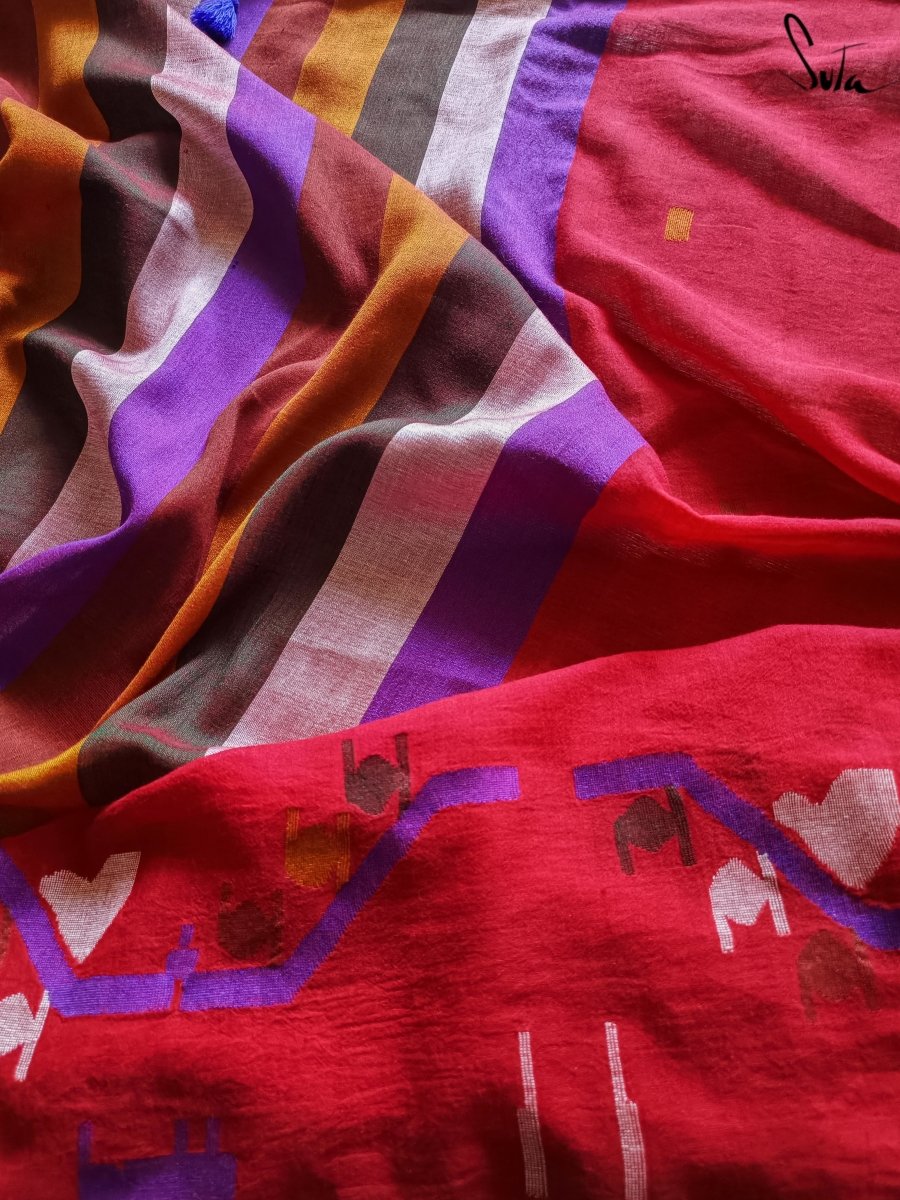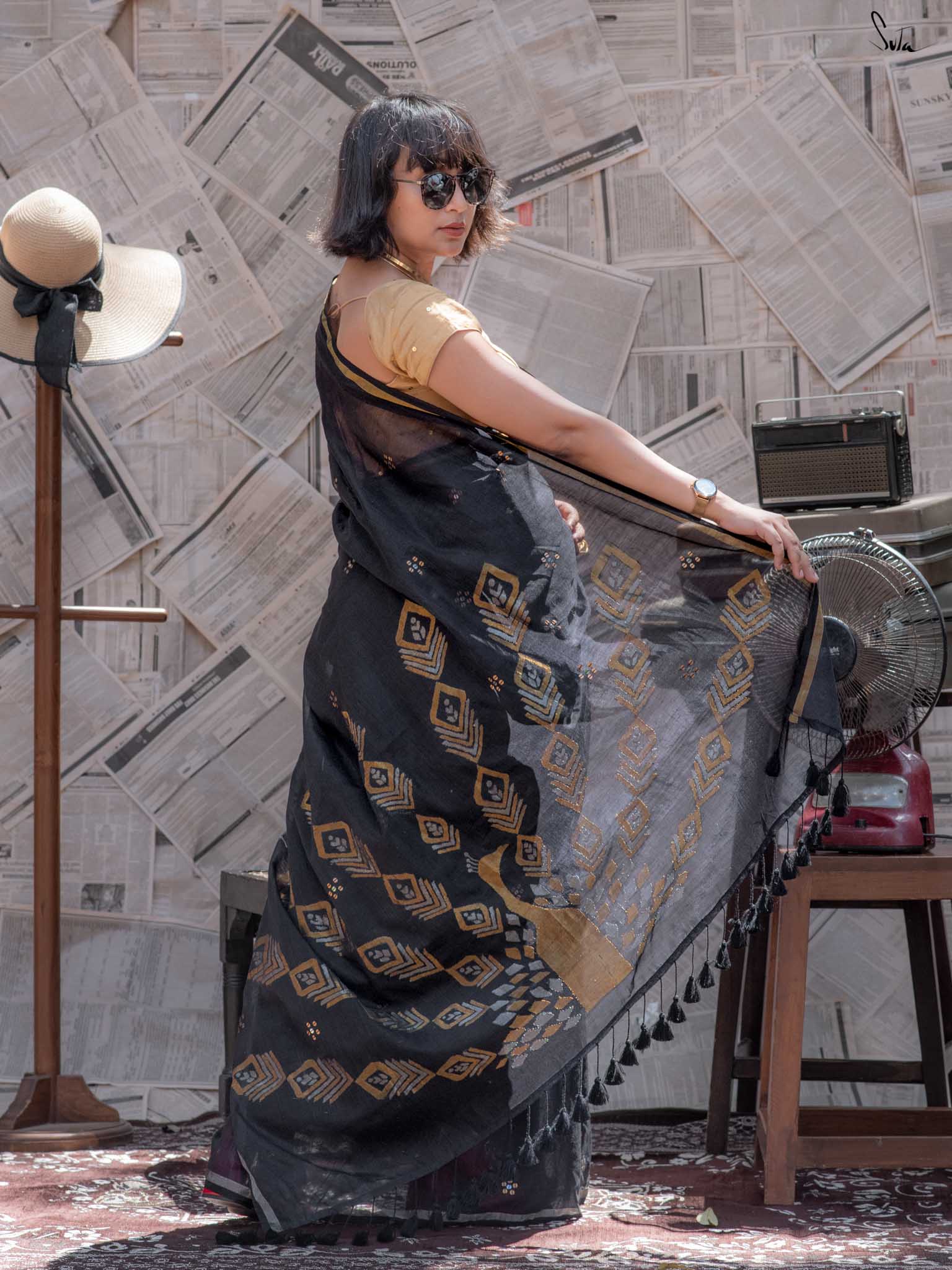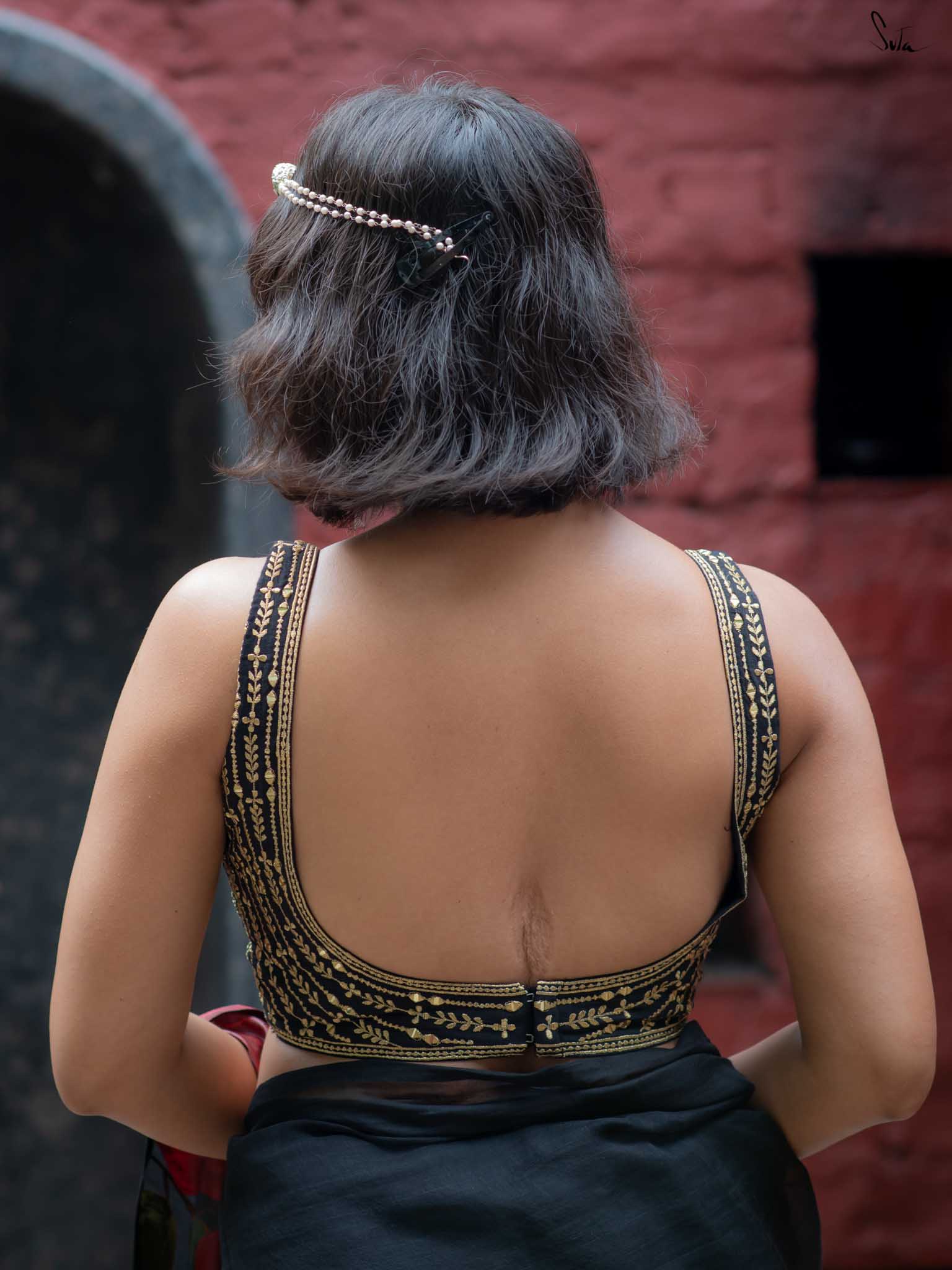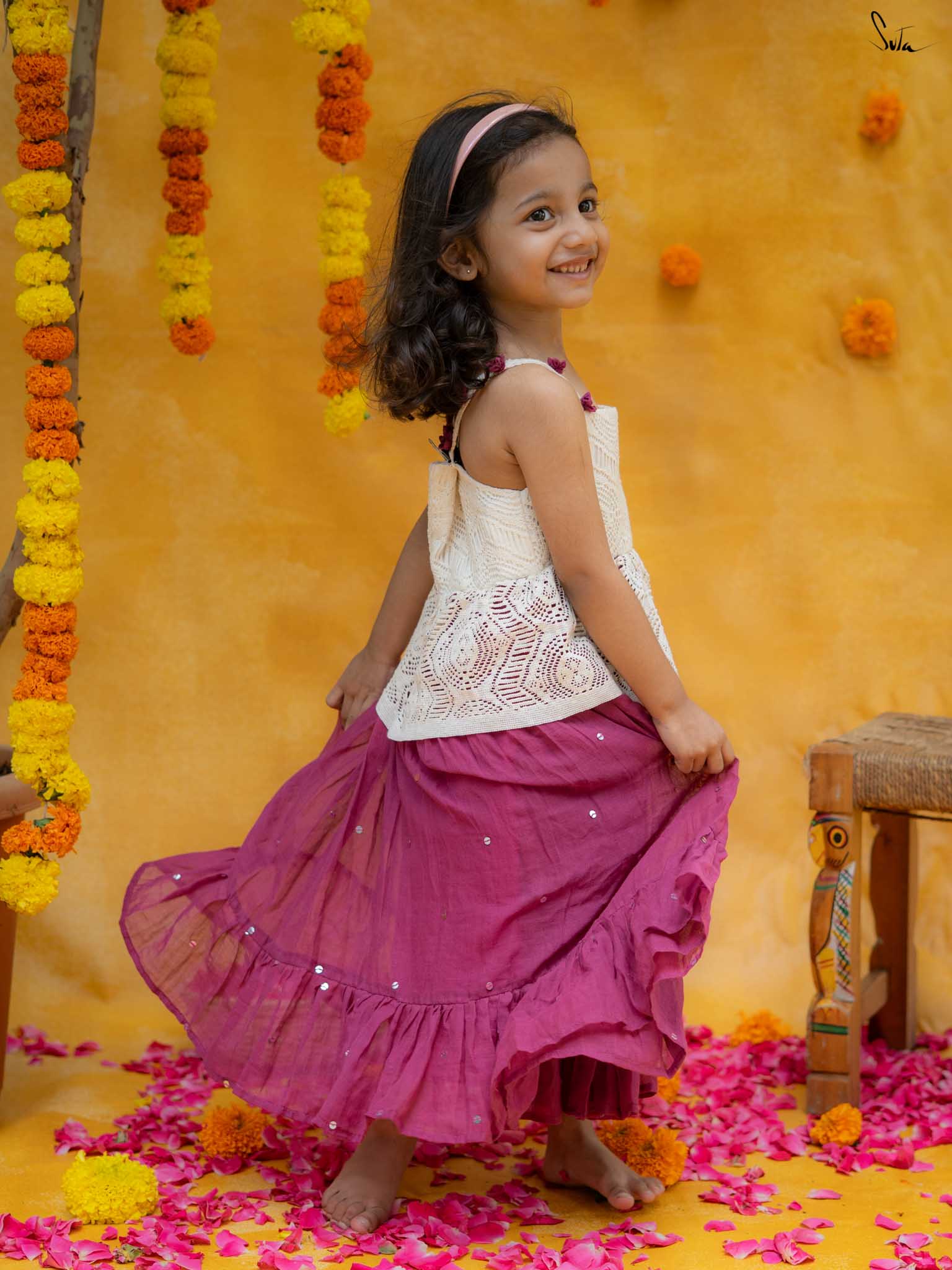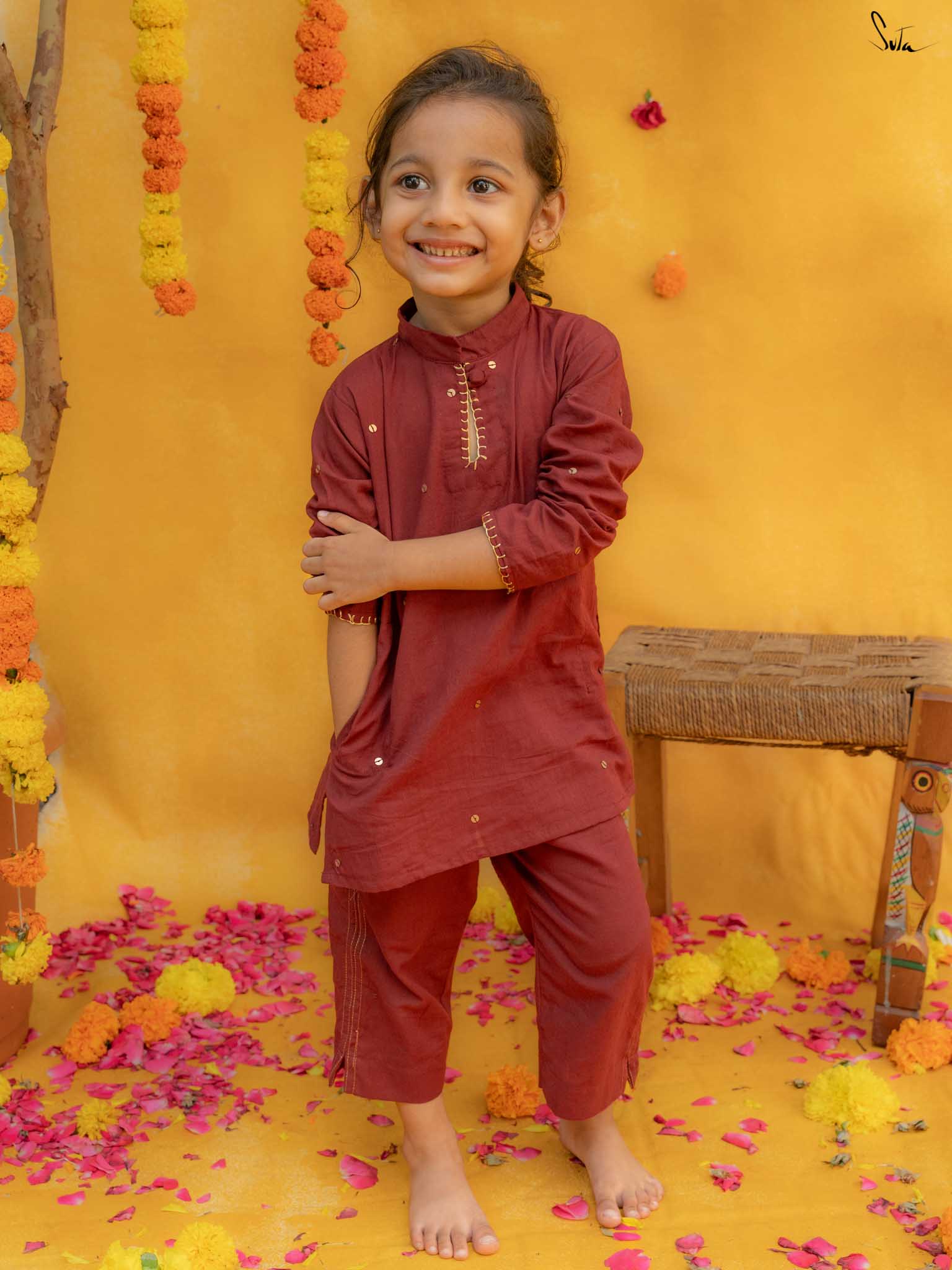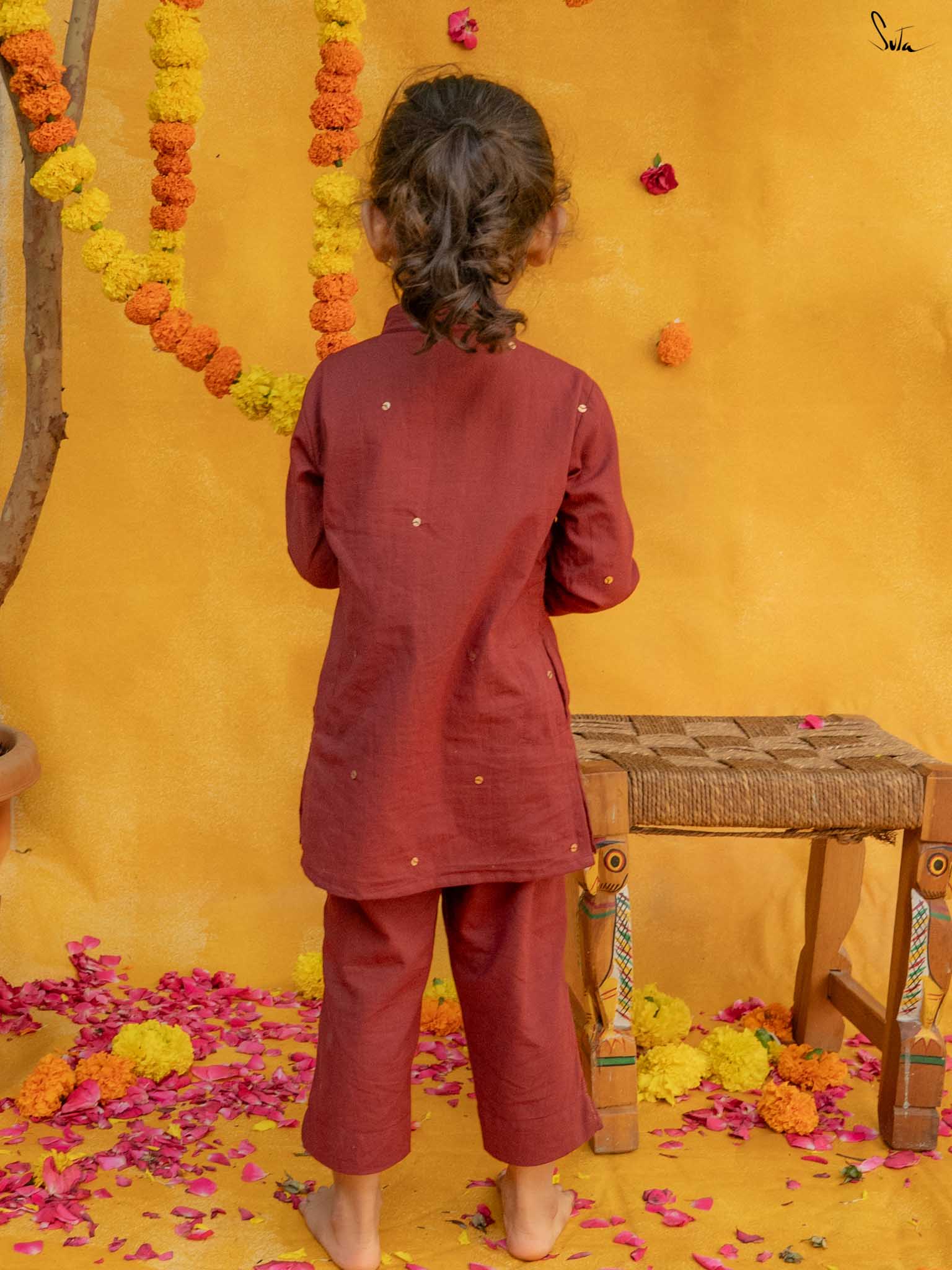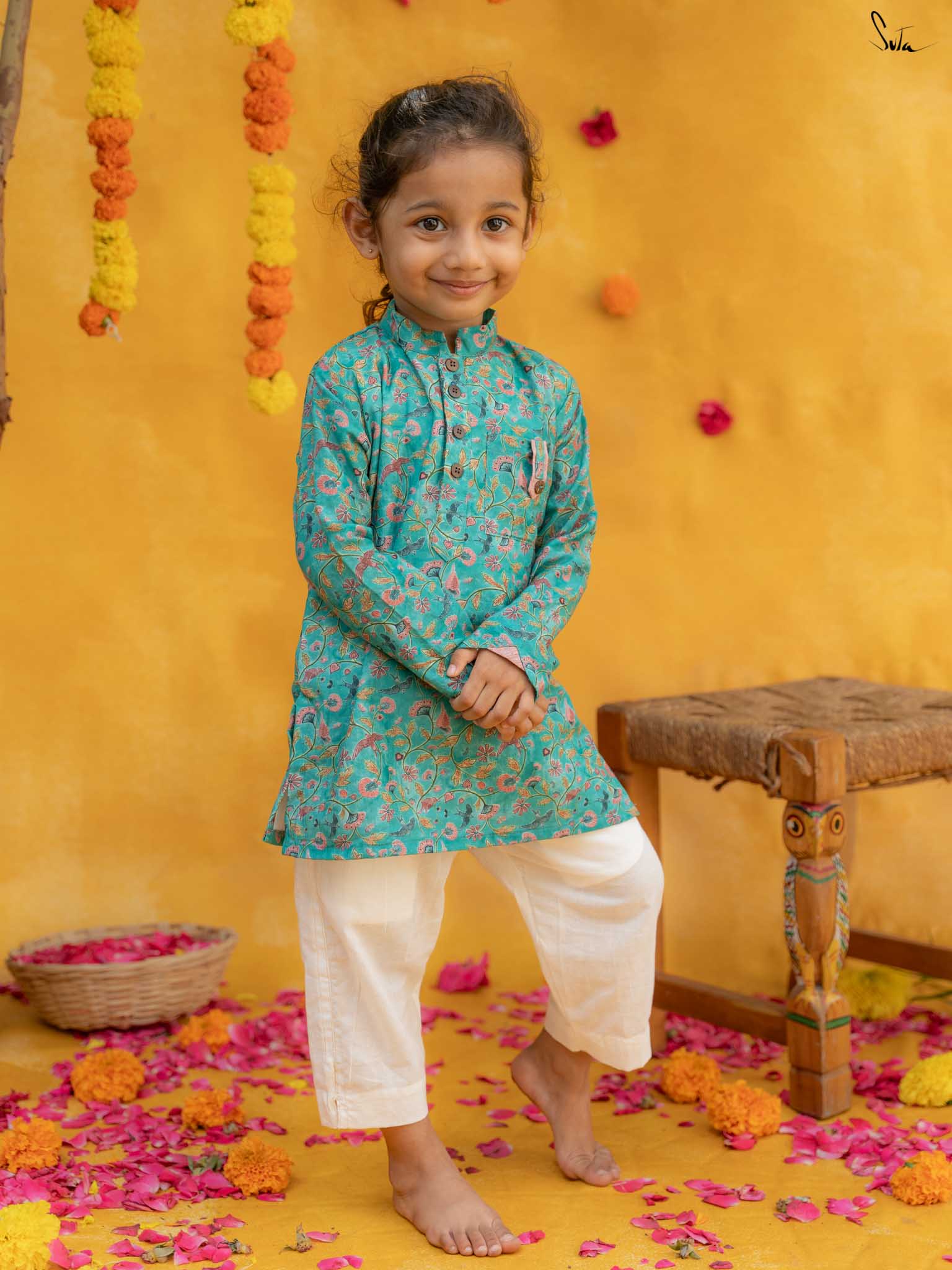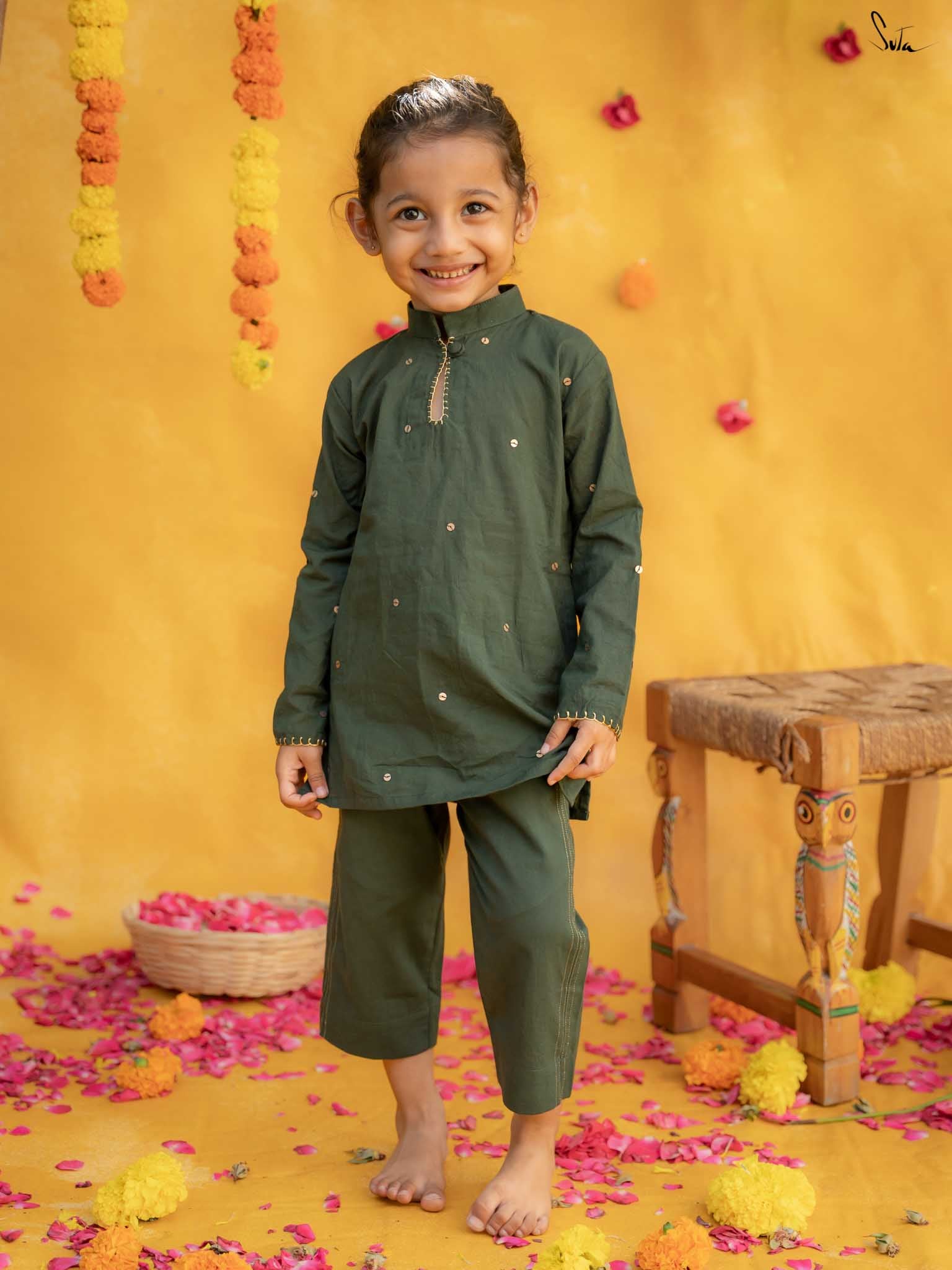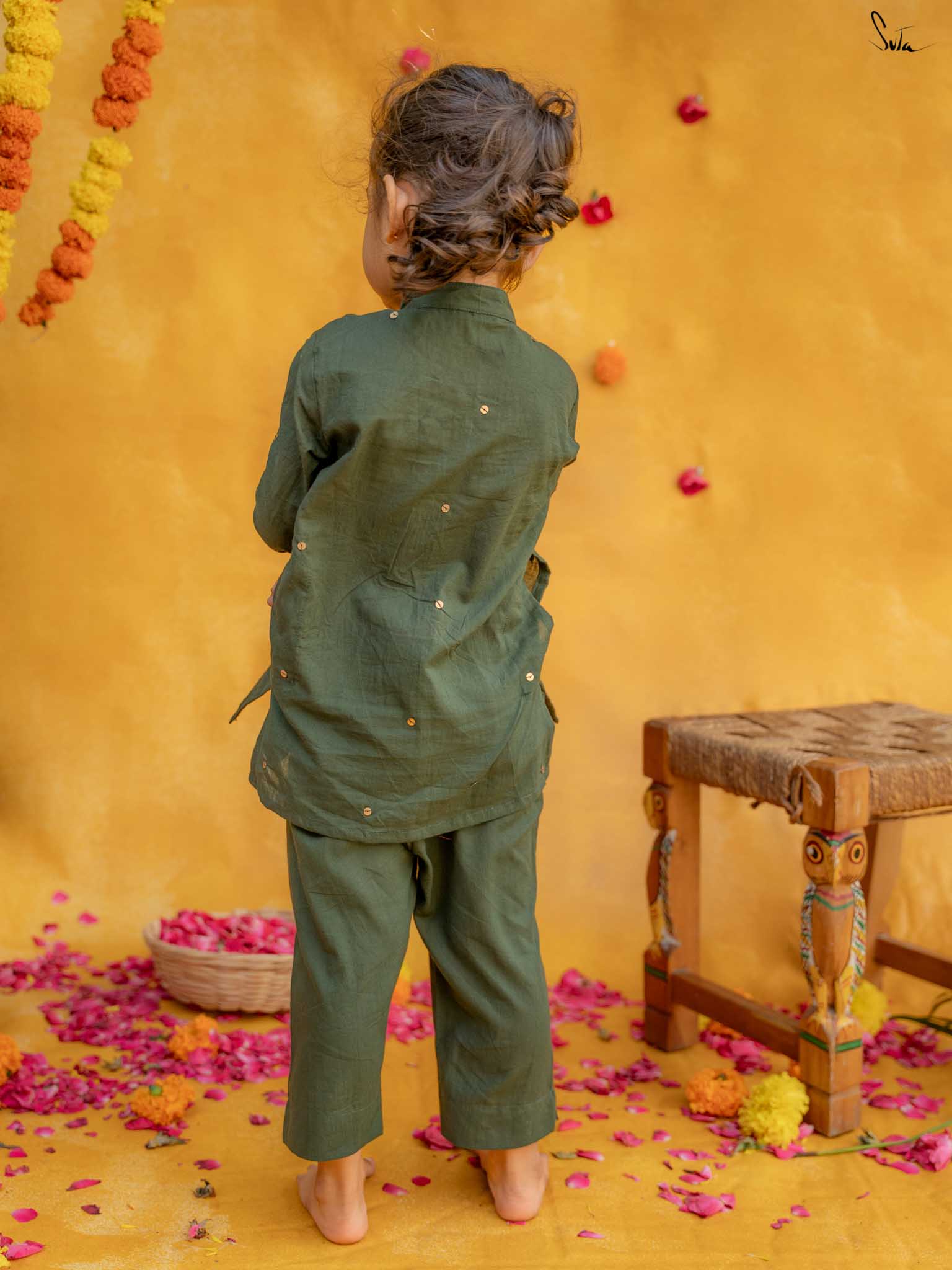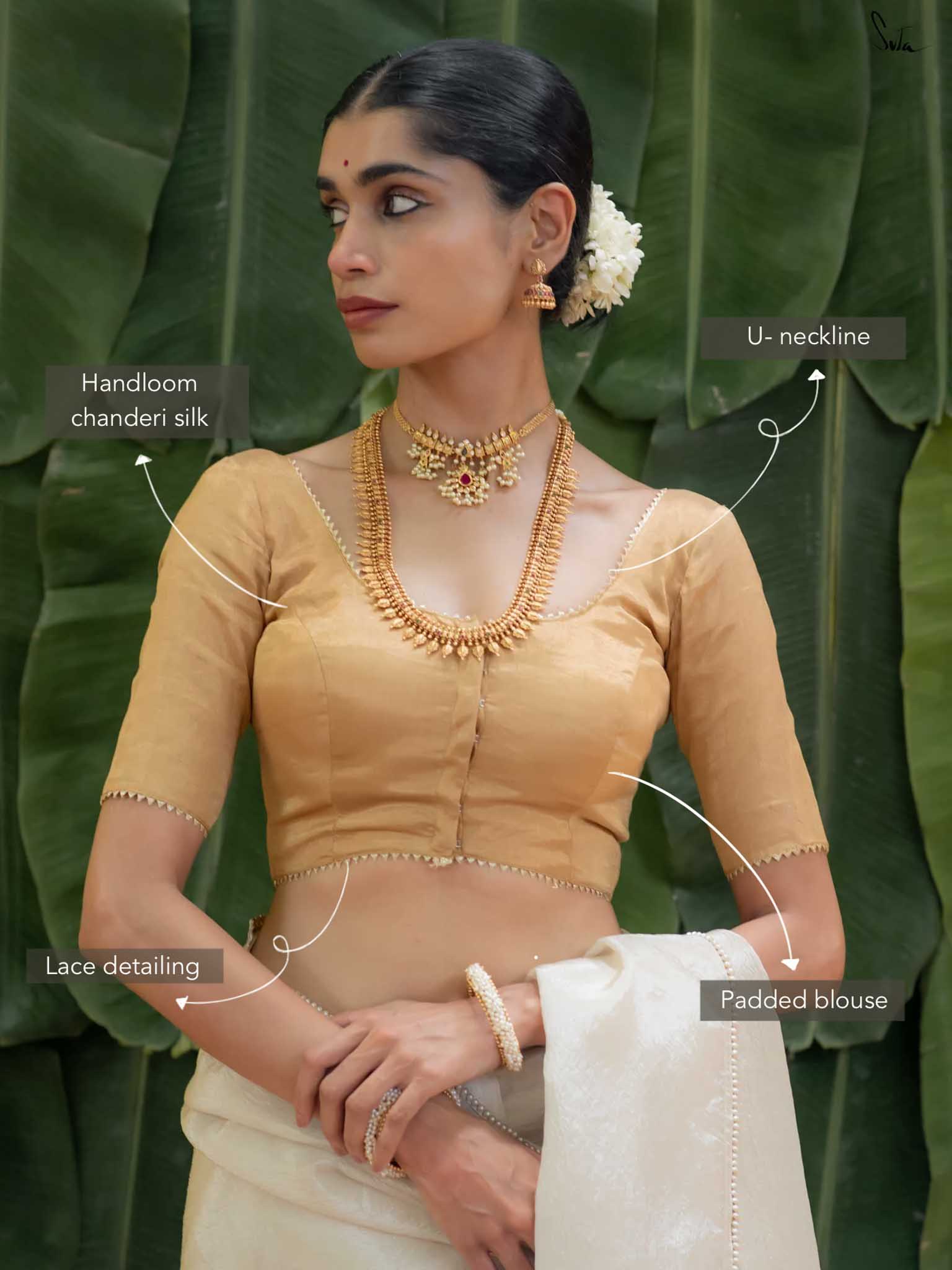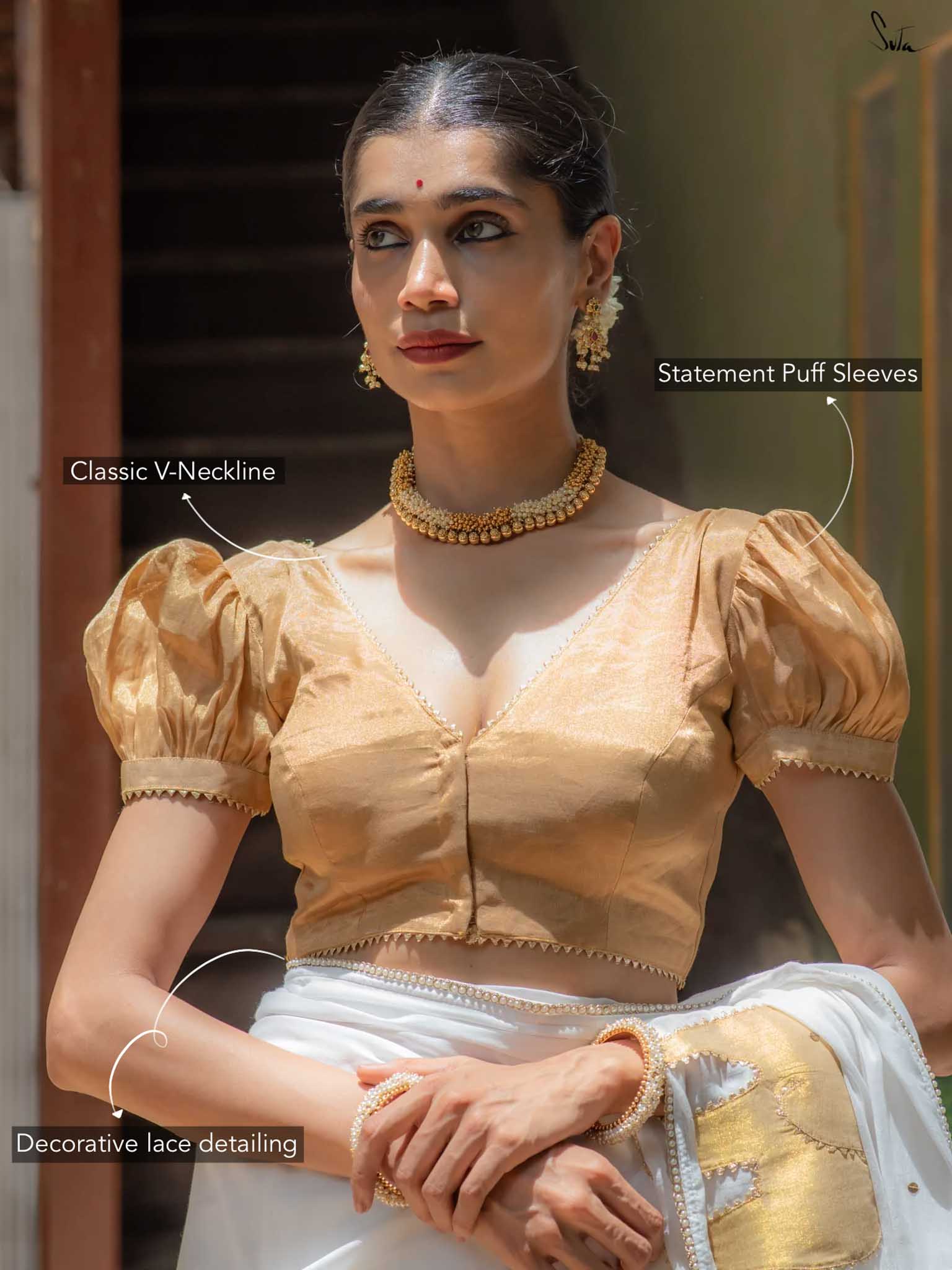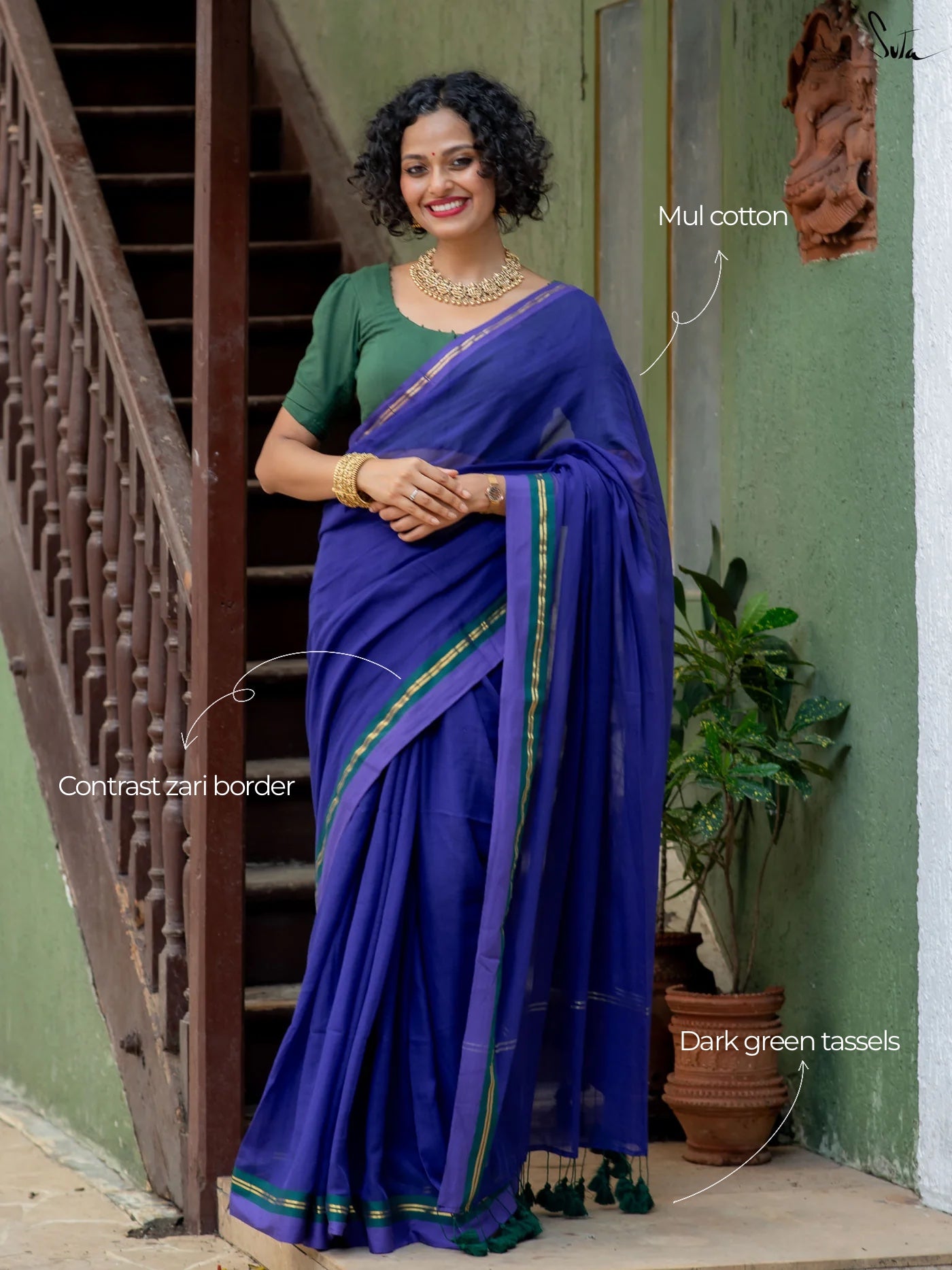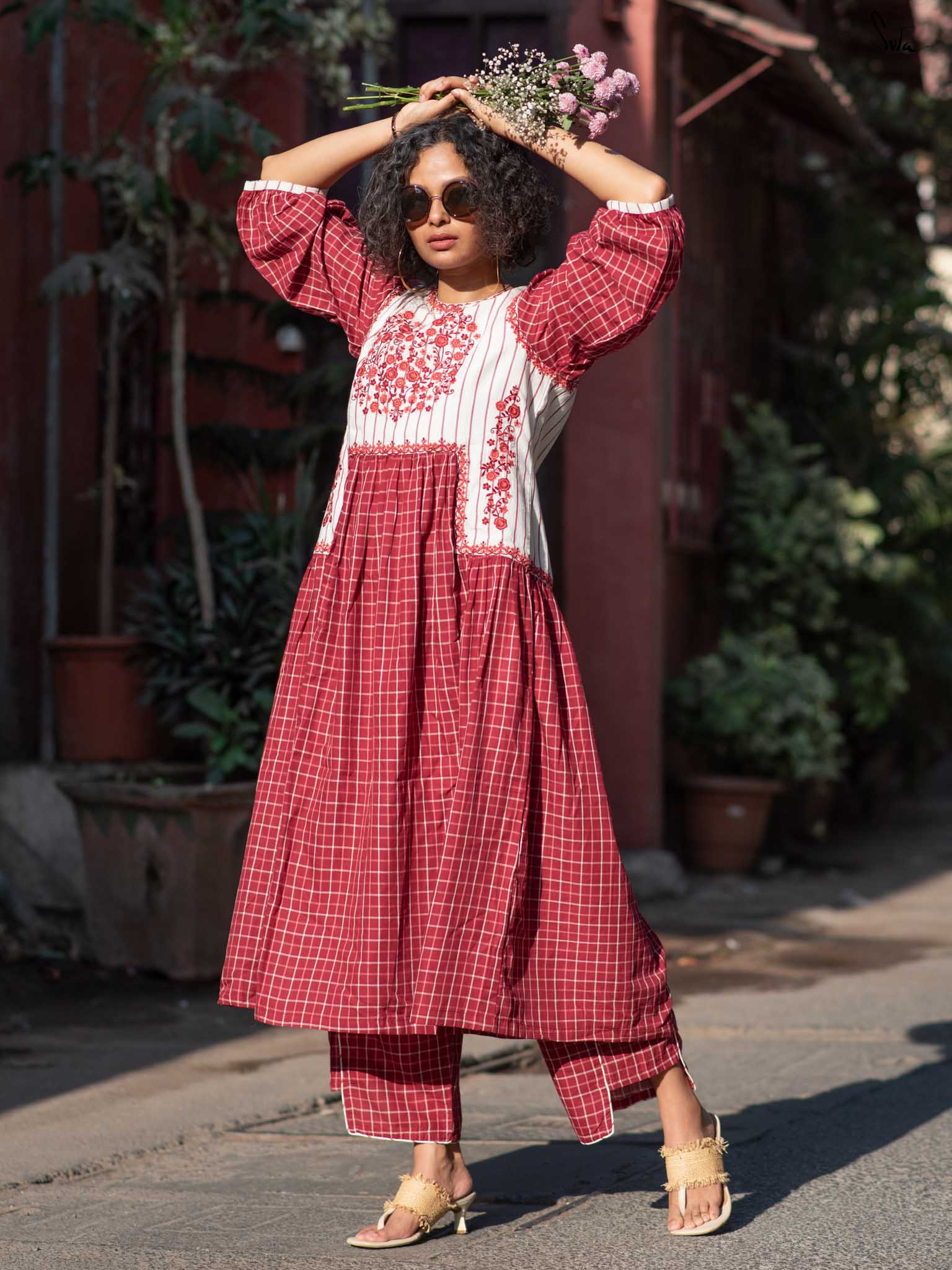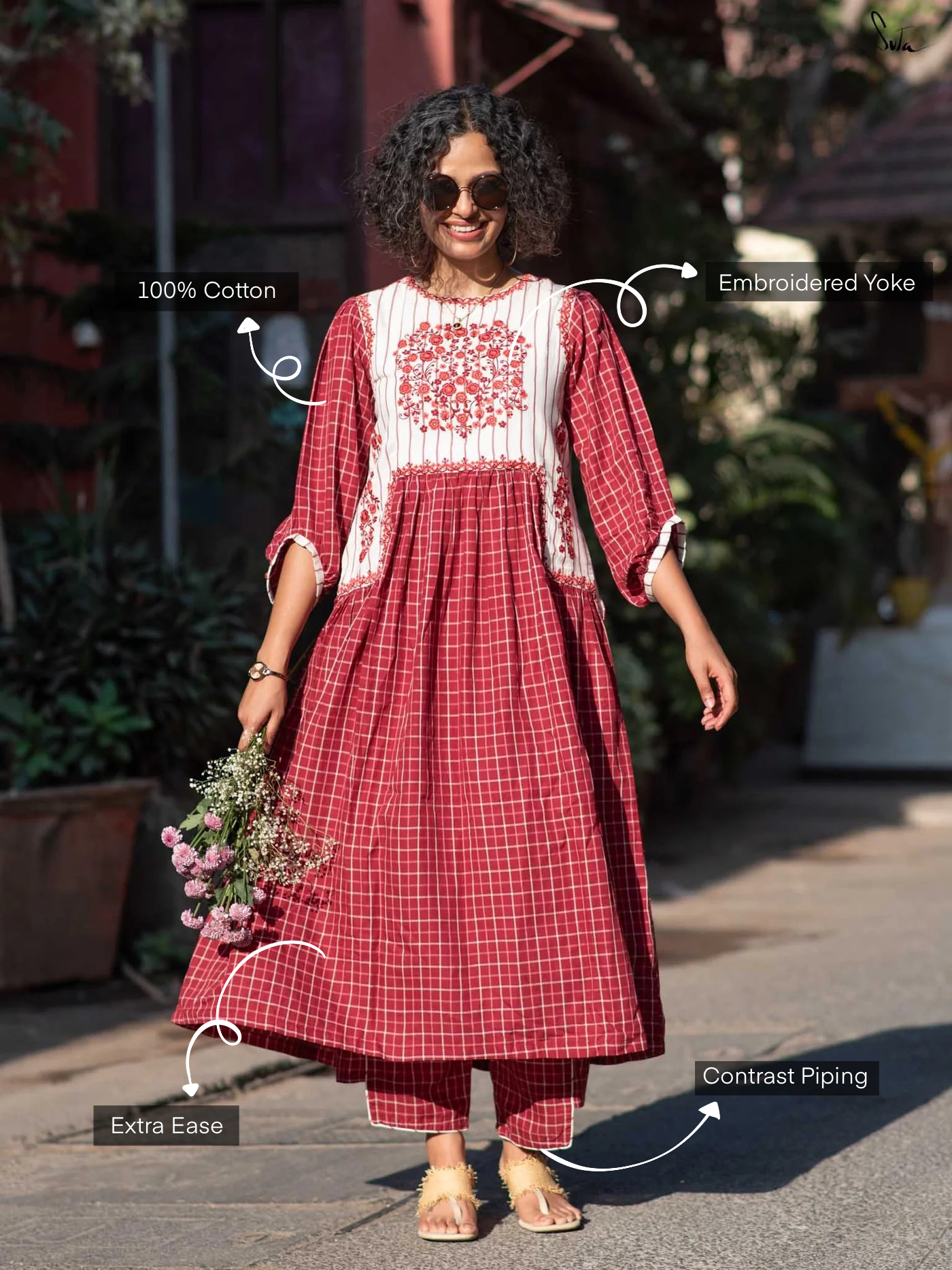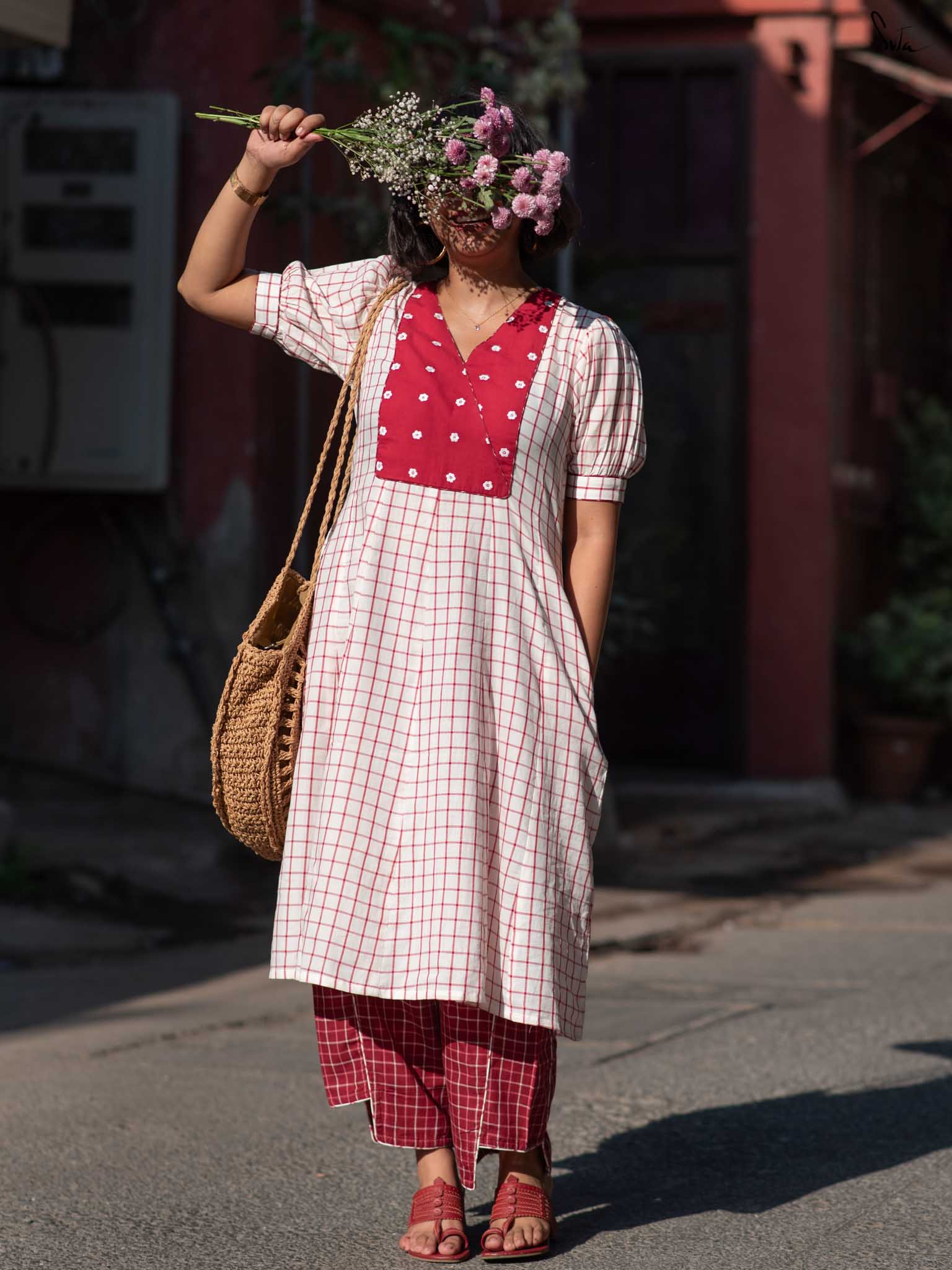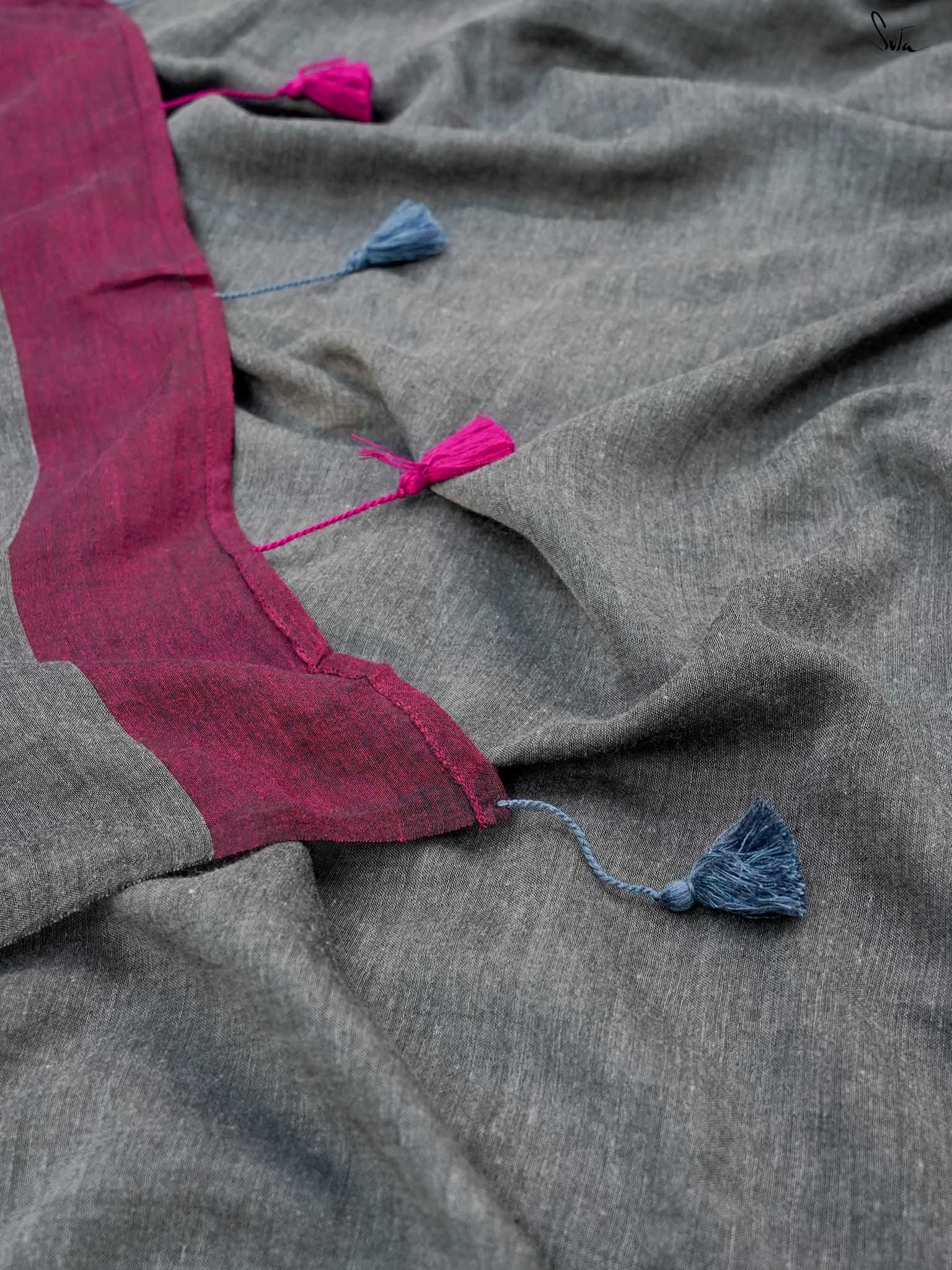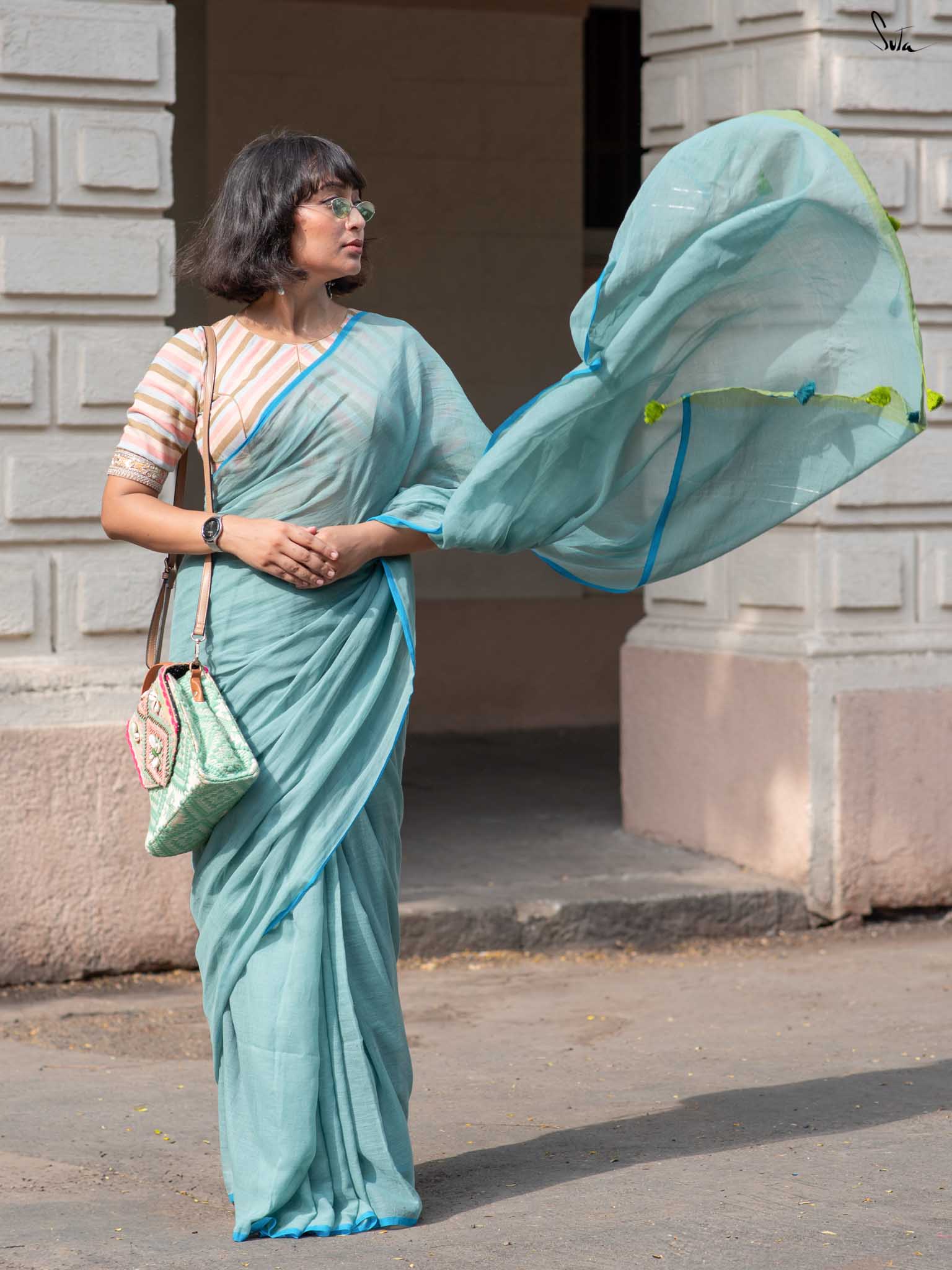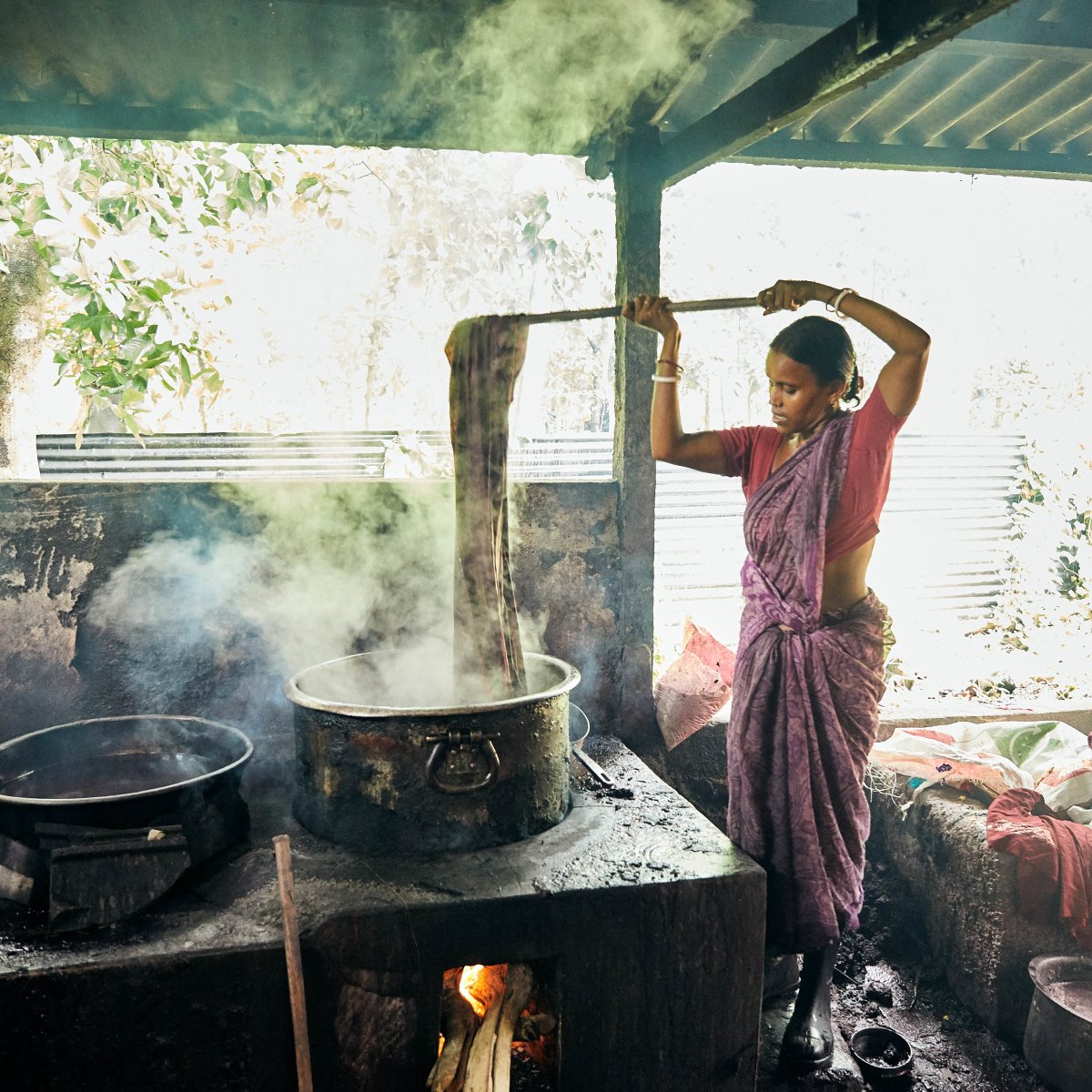
An artist named.. Malati
Years passed by and the girl turned into a beautiful woman - who could cook delicious meals for the whole family, whose voice when she sang was so melodious that even the neighboring houses in the village would go quiet only to listen to her. She was good at everything, except that her parents couldn't afford to finish her education beyond standard VII. At the age of 15 she learnt everything there was to learn at home - sewing and knitting, cutting and stitching, designing new things everyday - thats when she realized the birds and flowers weren't a figment of her imagination after all. They were real, as real as the cut pieces of clothes she took and transformed into something magical!
That girl was me, my name is Malati. Before I knew it I was married, soon after a mother of three beautiful children. In all the household work and managing my kids I hardly ever found any time for myself, let alone to create new stories on clothes. But whenever I found the time to breathe, I would quietly walk up to the room where my husband with other men would be weaving on the looms. Something about the rhythmic sound of the motion would make my heart ecstatic! The idea of something being born out of the weaves took all my fatigue away.So I waited every day for a saree to be ready so I could get closer and have a look. It mesmerized me every single time. And that's all there was to it - I would have to run back into the house when my 9-months-old would start crying and soon it would be time to prepare and serve dinner to everyone. But before I crawled into deep slumber, I would imagine different colors and patterns on the sarees and how they would look when women wore them. That was my last thought of the day, night after night. My house is made of mud with a thatched roof. Yes, like the ones kids always draw?
Surrounded by plenty of trees ripe with fruits like mangoes, lychees and blackberries! Apart from the room built for my husband and other workers to weave across the huge courtyard, there are only two rooms - one where my in-laws sleep and the other where I sleep with my husband and children. There's a small kitchen and the toilet (like in all villages) is far away
on the other side of the pond. There's a tubewell next to it. Every morning when I wake up, I take a bucket fill it up from the handpump and water the plants. We have all sorts in our garden - white and pink roses, marigolds (genda phool) in two different varieties, padmo phool (lotus), daisies and lal joba (hibiscus). But my favorite one is Shiuli (parijat or the night- flowering jasmine)! When they bloom they fill the air around them with a scent as pure as drops from heaven! I admire them for a few minutes before I take a bath in the pond, offer a prayer to the tulsi plant at the center of the courtyard and head off to prepare the first meal of the day. On other days I would wash the clothes and the utensils after this as a routine I've been following for years but today - felt different. I walked up to my husband's workspace and straight up-front asked him to teach me – “teach me all of it so I can work with you too” –
I demanded! With a palpitating heart and brightened eyes filled with hope, I refused to lower my gaze. At first he was shocked and for a few seconds everyone in the room stopped working. But then I saw him smile, the best smile I had seen on the man I loved dearly in many years! But there was one condition - only if I taught him how to cook - he said. So that way we could divide our chores and help each other out. That was when I felt closer to him
than ever. That was the best day of my life.
The following day I joined my husband and tried to grasp the whole process of picking the threads to use for a particular design, dyeing them (which is not as easy as it sounds and takes a few hands and many hours to get done for a single batch!) and preparing the loom with accurate measurements before the actual work starts. I helped him in every part of the process bit by bit as my training started. A week later he asked me to sit down and manage the loom all by myself as he watched. I've always been quick to learn by watching -
remember? I did well, he said, as my face gleamed with happiness. Meanwhile his ‘dal bhaat torkari’ was also coming out well. Now when I went to bed, I would place my head on his chest and in that moment I knew we were dreaming together. It took me a month and a half to become an expert (well, almost). I could finish an entire handloom saree on my own with a little help from my husband and baba (father-in-law). And soon, the women of the village came to know about it and started visiting the house where we worked before the sarees went to the Suta factory. Gradually the word spread to many
houses and from one village to another. My neighbors wanted to learn this art and become a part of it too. Our strength increased and we formed a whole new team. A team of women, no less! One day we had a company meeting and Su called me and asked what my favorite design is. Naturally it was that bird I had first seen my mother and grandmother sew and since then has been etched in my memory to last forever. That bird had given me wings to
dream big. It is difficult for everyone to manage a house especially after you have a kid. More so for women, who we have slightly higher expectations from. Your priorities change and your life starts to revolve around your child, hardly leaving you any time to focus on yourself. Most of the times women, besides other household work, also help their husband, brother, father or in-laws in numerous activities even before the thread reaches the loom, for example,
preparing the loom before the weaving started. Even post-production there are a lot of steps where women involve themselves. For example, washing the sarees, putting the tassels and labels, ironing and packaging, quality checks on the saree making sure there are no defects, and sometimes sit on the loom as well. They always contribute to a major part of what comes to your houses. But they weren't paid for all that extra work. The salary would always
go in the man's hand. It's painful to see your work not getting acknowledged financially, isn't it? But that was before. We at Suta have made sure the work division happens appropriately and the money goes into their respective accounts thus empowering the women workforce too. Over the years we’ve come to realize that a lot of women are not in the forefront owing to
their household responsibilities. They drop out of work when they have to come to office every day after running around the house to finish all work (without any house help) and take care of the kids too. So we give them work assignments that they can take back home and complete at their own pace while running the house efficiently. Think about the hundred things a new mom has to take care of and the only free time they get is when the child is asleep and that doesn’t have a fixed schedule right! That is when they can dedicate themselves 100% to other work without any interruption or distraction. That we've fully ensured at Suta. Bit by bit, we plan to have more women on board. We hope to grow bigger and stronger together ❤





